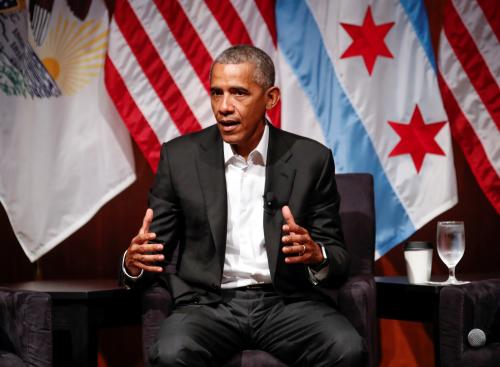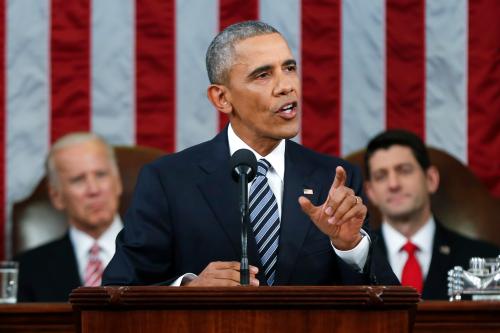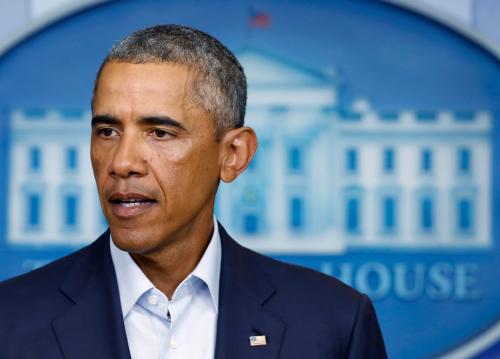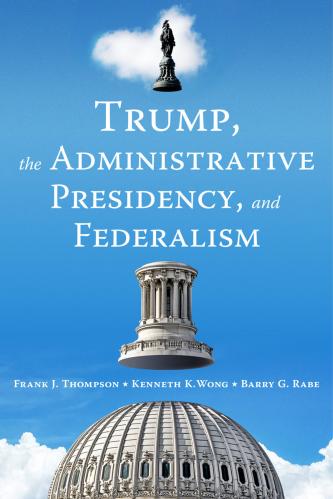Obama’s farewell address was the first step in shaping his legacy. Half of it, as expected, was about his accomplishments in office, from job creation to terror prevention. And the other half was about our democracy and how threatened we are by the great divides that exist in the country. In a long plea for civility in politics Obama quoted the fictional character Atticus Finch from the classic American novel To Kill a Mockingbird: “You never really understand a person until you consider things from his point of view, until you climb into his skin and walk around in it.”
The chosen quote was especially revealing in light of the recent election results. Had President Obama and Hillary Clinton been able to get inside and walk around in the skin of fewer than 100,000 people in Michigan, Wisconsin and Pennsylvania the entire Obama legacy might have been very different.
A legacy is something handed down from one generation to the next. But as the Obama presidency ends his entire legacy is in doubt. Republicans have vowed to reverse the Iran deal, to roll back all of Obama’s environmental regulations and pull out of the Paris agreement on climate change. They intend to start deporting the illegal aliens who came to America as children, Obama’s “dreamers.” And they are trying to repeal his signature domestic policy accomplishment—the Affordable Care Act. In a not-so-subtle reference to the trouble they are having he said: “And I’ve said, and I mean it, if anyone can put together a plan that is demonstrably better than the improvements we’ve made to our health care system, that covers as many people at less cost, I will publicly support it.”
There are only two ways a president can forge a legacy in American politics: accomplish things with bi-partisan support or nurture their political party so that people are elected who will carry on and protect their accomplishments. Obama’s legacy is in trouble because he did neither—at least for the last six years of his presidency. For him the first path was difficult and some would say impossible; he faced a Republican Party controlled by extremists determined to undermine him at all costs. That left him a second path: build a Democratic Party strong enough to carry on his accomplishments. And yet, he preferred his own campaign organization (Obama for America) to the institutional Democratic party at the state and national level. Early on he dismissed Democratic National Committee Chair Howard Dean from a role in his administration even though Dean’s leadership had a big hand in delivering 2006 and 2008 victories for Democrats. He then persisted in keeping on a DNC Chair—Debbie Wasserman Schultz—who was not doing the job of getting state parties ready for the presidential campaign and whom his own White House ignored.
In its preview of the Obama speech, NBC’s First Read listed fifteen statistics in a piece titled “Then vs. Now: A statistical look at Obama’s presidency.” Ten of those paint a solid picture of a successful presidency: unemployment down, stock market up, gross domestic product up, consumer confidence up, median income up, poverty down, Americans with health insurance up, federal deficit down, U.S. troops in Iraq down, U.S. troops in Afghanistan down.
But there are other statistics that are the core of Obama’s legacy problem. A recent Gallup poll shows that in spite of the good statistics laid out in First Read; on nineteen different issues Americans thought the United States had lost ground on seventeen of them during the eight years of the Obama Administration. This could change but time is running out.
The real legacy problem for Obama is that in his eight years in office the Democratic Party has been decimated and therefore there are no power centers strong enough to defend him. The number of Democrats in the House of Representatives is down by 62, the number of Democrats in the Senate is down by 10, and the number of Democratic Governors is down by 10.
Obama sought to be a transformative president and failed. That’s because a presidential legacy is not simply what a person accomplishes in office but whether or not he leaves behind a political party strong enough to nurture and protect the legacy. From what we know about Obama’s post-presidency he intends to try and create a new generation of Democrats who will run for office. That is laudable but it may be too late.
Elaine C. Kamarck is a Senior Fellow at the Brookings Institution and author of Why Presidents Fail And How They Can Succeed Again. She is a superdelegate to the Democratic convention.
The Brookings Institution is committed to quality, independence, and impact.
We are supported by a diverse array of funders. In line with our values and policies, each Brookings publication represents the sole views of its author(s).










Commentary
Obama leaves office with popularity, but little political strength
January 11, 2017